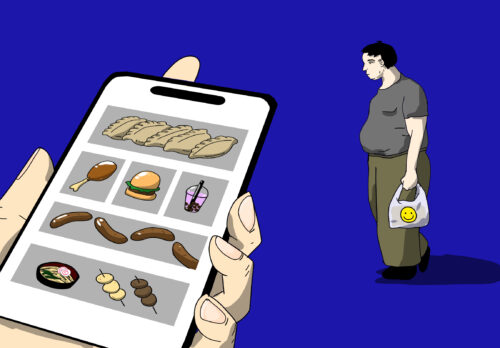China’s delivery services have saved the country’s F&B industry during COVID-19

Photo by Anthony Tao
Ellen Xu (徐子画 Xú Zihuà), the owner of a Hangzhou-based neighborhood bar called Chimney, has seen business decline sharply in the last month and a half due to COVID-19. But that doesn’t mean she’s sitting back or giving up.
“We launched a creative beverage program on platforms such as Ele.me,” Xu said, referring to Alibaba’s food delivery service. “It’s an online drink delivery service providing measured amounts of cocktail ingredients with easy instruction videos so people can make their own cocktails at home.”
If it seems strange that a bar would start taking orders online, it shouldn’t: During this coronavirus period, many businesses have found innovative ways to stay afloat — that includes thinking of fresh strategies to promote existing products.
“The point is, people can’t go out to have the bar experience, so we bring the experience home to them,” Xu said.
This need for creativity has been especially apparent for those in the food and beverage industry, who have been hit hard. The coronavirus epidemic broke out in China during what is traditionally the busiest season for restaurants. According to a Rabobank report, alcoholic drink brands in China, especially for the Chinese spirit baijiu, earn up to half of their full year’s revenue from the holiday season.
According to a market report published by the ecommerce platform Meituan last month, nearly 30% of surveyed restaurants have begun using delivery services as a response to the epidemic. Nearly half of the surveyed restaurants say they’re getting more than 70% of their revenues from delivery.
Restaurants that don’t typically deliver have been forced to use the option. Vinie Huang, a food blogger in Shanghai, said that orders of hotpot have spiked recently. This could be something that persists even after the epidemic passes, considering how much people are discovering the beauty of hotpot from home.
Of course, not everyone is thrilled that they’ve had to move online. Lǐ Fēng 李峰, a Shenzhen-based wine distributor, bar owner, and food blogger, said that the consumption of wine depends largely on consumers’ experience in the store. A product’s presentation, down to the temperature at which it’s stored, matters to connoisseurs, and it’s these subtleties that are lost when transporting a product from door to door.
“The wine and bar experience for people is more of a luxury and source of enjoyment rather than everyday need, as food is,” Li said. “So when an epidemic comes that affects people’s income and consumption power, they will focus on buying daily necessities and curtail their expenses on wine and beverage.”
While the F&B industry reels, one industry that has seen an unexpected boon is the delivery industry. Liáng Chānglín 梁昌霖, the founder and CEO of the fresh food ecommerce platform Dingdong Fresh, said that its delivery-to-door service has seen demand increase 300% compared to just before Chinese New Year.
In addition to delivering fresh vegetables, meats, and fruits, Dingdong Fresh has opened a new category called “Chinese New Year dishes,” which delivers semi-finished dishes that have proven popular with customers.
During these volatile times, China’s delivery platforms have provided a lifeline for its F&B industry. From January 26 to March 10, more than 200,000 business owners opened accounts on Ele.me. According to statistics from Alipay, the 10 most popular fresh delivery online programs on its platform received three times the revenue compared to the period just before the outbreak. The online option has helped diversify the revenue stream for restaurant owners, and marks a new approach that businesses can seek when a normal routine is disrupted during a crisis.
An earlier version of this article appears on Medium.





